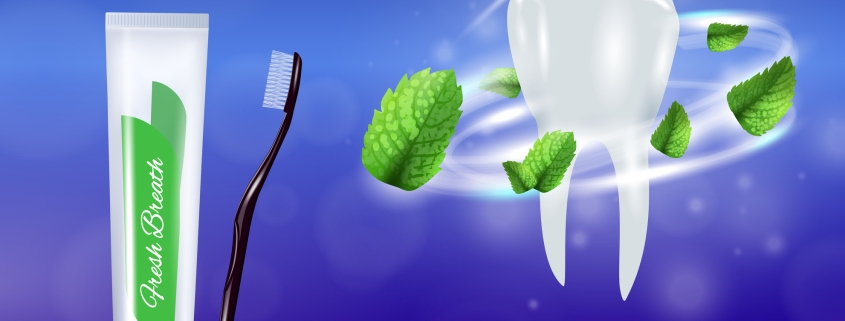The Interplay Between Healthy Teeth and Fresh Breath
A radiant smile isn’t just about the appearance of teeth; it’s also a testament to oral health and hygiene. Healthy teeth play a pivotal role in maintaining fresh breath, contributing not only to self-confidence but also to positive social interactions. In this article, we explore the connection between healthy teeth and breath, emphasizing the importance of oral hygiene practices for a confident and fresh-smelling smile.
The Oral Microbiome
a. Bacteria in the Mouth:
The mouth is home to a diverse community of bacteria, both beneficial and harmful. Maintaining a healthy balance is crucial for oral health and plays a significant role in preventing bad breath.
b. Plaque and Tartar Formation:
Inadequate oral hygiene can lead to the accumulation of plaque—a sticky film of bacteria—on the teeth. Over time, plaque hardens into tartar, providing a breeding ground for bacteria that contribute to bad breath.
The Role of Healthy Teeth
a. Preventing Tooth Decay:
Healthy teeth are less prone to decay, which can lead to unpleasant odors. Regular brushing, flossing, and dental check-ups help prevent cavities and maintain optimal oral health.
b. Gum Health:
Healthy gums are essential for preventing bad breath. Gum disease, characterized by inflammation and infection, can contribute to malodorous breath. Proper oral care helps keep gums healthy and reduces the risk of bad breath.
Oral Hygiene Practices
a. Regular Brushing:
Brushing teeth at least twice a day helps remove plaque and bacteria, preventing the buildup of substances that can cause bad breath.
b. Flossing:
Flossing is crucial for cleaning between teeth and along the gumline, areas that a toothbrush may not reach effectively. This helps eliminate trapped food particles and bacteria.
c. Tongue Cleaning:
The tongue harbors bacteria that contribute to bad breath. Gently cleaning the tongue with a toothbrush or scraper can help reduce bacterial growth and enhance oral freshness.
d. Mouthwash Use:
Antiseptic mouthwashes can help kill bacteria and freshen breath. However, they should complement, not replace, regular brushing and flossing.
Nutrition and Hydration
a. Drinking Water:
Staying hydrated helps maintain saliva production, which plays a crucial role in neutralizing acids and washing away bacteria. A well-hydrated mouth is less conducive to the development of bad breath.
b. Crunchy Fruits and Vegetables:
Foods like apples, carrots, and celery act as natural toothbrushes, promoting saliva production and helping to clean teeth.
c. Avoiding Strong Odors:
Certain foods with strong odors, such as garlic and onions, can contribute to bad breath. Limiting their consumption can help maintain oral freshness.
Regular Dental Check-Ups
a. Professional Cleanings:
Dental professionals can remove plaque and tartar during regular cleanings, helping to prevent the development of conditions that lead to bad breath.
b. Early Detection of Issues:
Regular dental check-ups allow for the early detection and treatment of oral health issues, preventing them from progressing and causing bad breath.
Signs of Potential Issues
a. Persistent Bad Breath:
Chronic bad breath, also known as halitosis, may indicate underlying oral health issues, such as gum disease or tooth decay, and should be addressed promptly.
b. Dry Mouth:
Insufficient saliva production, often caused by medications or certain medical conditions, can contribute to bad breath. Maintaining good oral hygiene becomes even more critical in such cases.

